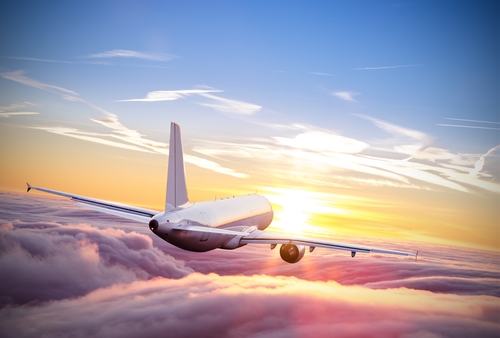Even though flying remains one of the safest forms of travel from a statistical standpoint, fear of flying is one of the most common phobias people have. Whether it's because of fear of an accident, the claustrophobia associated with being in the airplane cabin, or the loss of control they feel, flying can be a big source of anxiety for travelers. For many people, their anxiety can begin days or even weeks before their flight, making them feel nervous and negatively impacting their daily lives. However, if you have flying anxiety, the experience of flying for work or vacation doesn't have to be stressful. There are many options for preventing and overcoming that anxiety before and during a flight. The accompanying airplane anxiety guide lists some of the techniques that are most effective at helping nervous flyers cope with their anxiety.
Flying may produce anxiety in people in many ways. Some people are unnerved by the unfamiliar noises they experience during a flight, or the pain they feel due to sudden air pressure changes. Other people don't like confined spaces and the feeling that they can't get out, which are only made worse by staying in a pressurized cabin for several hours. Many other people have misconceptions about how safe flying is, and spend their flight in fear of an accident. No matter what causes it, anxiety can make flying uncomfortable and agonizing.
Fortunately, there are a number of strategies you can practice to help reduce your anxiety before you board the plane, as well as many steps you can take during a flight that can help you feel more at ease. One proven technique is to spend the weeks before your flight concentrating on your physical fitness, as that can have a major effect on your mental state. Whether you work out more, concentrate on meditation or yoga, or a combination, improving your physical condition can make a big difference in your mood while you fly.
While you're in the air, you can try to concentrate on puzzles, movies or any other activity that will occupy your mind and help prevent you from focusing on your anxiety. Bringing items in your carry-on bag such as noise-canceling headphones, coloring books, a sleep mask or anything else that can take your mind off the flight is another sound strategy.
It is possible to have a comfortable, relaxing flight - even if you have flight anxiety. By being aware of what causes you to feel stressed during a flight and using some coping strategies before and during the flight, you can enjoy your flight much more and arrive at your destination feeling calm. Review the accompanying aerophobia guide from Latitude 33 Aviation to help you prepare for your next flight without stress or anxiety.













No Comments